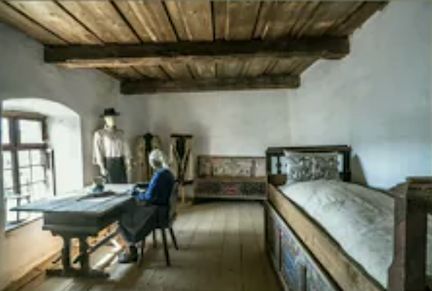The Legacy of Forgiveness
Chrisitan author and writer for such publications as Our Daily Bread writes:
Five years after World War II ended, Marvin Maris met Taizo Fujishiro at a seminary in Chicago. Although the two had once been on opposing sides during the war, Maris remained a friend to Fujishiro. He prepared class notes for him, taught him how to drive, and invited him to celebrate Christmas together. After Taizo returned to Japan, they continued to stay in touch.
Forty years later, Maris’s granddaughter, Connie Wieck, went to Japan to teach English. She called Fujishiro and introduced herself. The next day they met for lunch. Taizo told her all about her grandfather, his first American friend.
Later Connie wrote: “Having grown up in a town where many veterans still carried deep pain … I never believed forgiveness could happen between people who were directly involved in such a dark history. Yet the friendship between my grandfather and Taizo proved otherwise.”

The apostle Paul described the miracle of salvation by writing, “When we were God’s enemies, we were reconciled to Him through the death of His Son” (Romans 5:10). And John reminds us that those who have been forgiven must love their brothers and sisters (1 John 2:9-12).
The legacy of God’s forgiveness will be passed on from generation to generation if we humbly receive His gift of forgiveness in Christ and extend it to others.
You Are Hereby Sentenced to Marriage Prison
"It may sound like a nightmare," reports Stephen McGrath of BBC Travel, 'but records show that this form of marriage counselling in Transylvania was rather effective."
He is speaking of the "marriage prison" housed within the walls of the 15th Century church in the heart of the "frozen in time" Transilvanian village of Biertan.
Inside the church grounds, along one of its fortification walls, is a small building with a room inside barely larger than a pantry. For 300 years, couples whose marriages were on the rocks would find themselves here, locked away for up to six weeks by the local bishop in hope that they would iron out their problems and avert a divorce. ...
The room has low ceilings and thick walls, and is sparsely equipped with a [single] table and [single] chair, a storage chest and a traditional Saxon bed that looks small enough to belong to a child. As couples attempted to repair their marriages inside this tiny space, everything had to be shared, from a single pillow and blanket to the lone table setting.

The prison room is today nothing more than a museum. But it remains, nonetheless, a testament to the many success stories fought for (now doubt!) and won within its walls.
“Thanks to this blessed building, in the 300 years that Biertan had the bishop’s seat we only had one divorce,” said Ulf Ziegler, Biertan’s current priest.
You can either choose to see your troubled marriage as a prison within which you feel trapped and seek to escape, or you can choose to "sentence" yourselves to the experiment of "marriage prison" — a spiritual place of commitment to shared experience and oneness, a place where "everything [has] to be shared," as God has intended.
Within the walls of that theoretical prison, you just might find an intimacy and a oneness that sets you free to experience all that marriage can be.
"Therefore a man shall leave his father and his mother and hold fast to his wife, and they shall become one flesh" (Genesis 2:24, ESV, cf. Matthew 19:2-9).
The Law of Love
Thomas Burrows, with the Daily Mail, reports:
The highest court in Austria has said a resident cannot smoke on his balcony or with the windows open during set hours as it is disturbing his neighbor’s sleep ...
A university professor, living in the Austrian capital, had filed the case after complaining about the smell coming from the flat below.
The court heard how the resident below enjoyed a cigar on his balcony during the summer, typically between midnight and 2am.
In the winter, he tended to smoke with the windows open in his apartment.
... The country's highest court said the resident cannot smoke outside or with the windows open between 10pm and 6am.
In the summer, he is also prohibited from smoking during 'eating times' - between 8am and 10am, midday and 3pm, and 6pm and 8pm.
The decision could have far-reaching effects on the country.

It’s amazing that a single dispute between neighbors could find no solution until it reached the highest court in the land. Shouldn’t two people be able to work something like this out? And even if they need help from an authoritative third party, should an entire nation be forced to comply to a new set of laws because two people refused to accommodate one another?
There is no end to the need for new laws when the hearts involved are unyielding and selfish. By contrast, the end of the law is the love of Christ. When God’s love is the guiding principle, there is no need for any other principle. Laws aimed at enforcing compliance over such trivial disputes become unnecessary. It’s God’s love, not mans laws, that brings peace.
“For the entire law is fulfilled in keeping this one command: ‘Love your neighbor as yourself’” (Galatians 5:14).